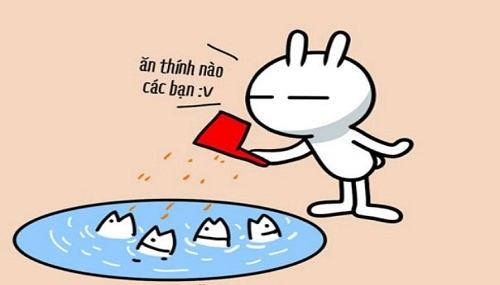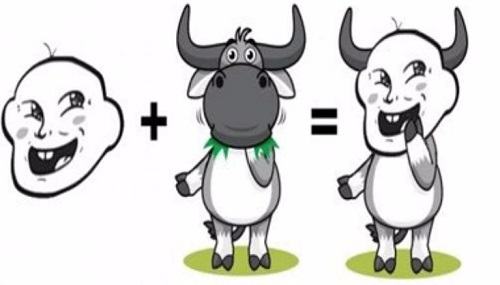Some “hot” slang words in Vietnamese
Maybe slang words are the most annoying words, because they are difficult to listen and understand. So, what are slang words that young Vietnamese people often use, and what do they mean? Let’s find out through this post: Some “hot” slang words in Vietnamese.

What are slang words?
Slang words are informal words of a language and they are often used in daily life. Slang words are not often used in their literal meanings but in their figurative meanings.
Some slang words have impolite pronunciation and meanings.
When are slang words used?
You should be careful when using slang words. Slang words are not used in polite conversations that require seriousness such as: giving speech, talking with elders, superiors or strangers, etc.
Some “hot” slang words in Vietnamese
The following examples are popular slang words in Vietnamese. Some words or explanations are impolite, making you annoyed.
Gấu
Everyone usually thought that “gấu” is a large mammal with a thick fur coat that lives especially in colder parts of Europe, Asia, and North America before. But now the word “gấu” has another meaning. That is someone’s lover. You can hear some sentences such as: “Bạn đã có gấu chưa?” (Do you have a lover?), “Gấu của mình không đi chơi được” (My lover can’t go out), or “Gấu ơi, em đang làm gì vậy” (Honey, what are you doing?).

Phò
This word refers to a girl who works as a prostitute.
Lầy lội, lầy
This word refers to someone’s personality or action.
- It describes someone’s funny personality and spirit of willingness to play (in a positive way). For example: “Thằng Bình nó lầy lắm đấy”. “Lầy” in this sentence means to be funny.
- It also describes someone’s bad personality. For example: “Ông ấy cứ uống rượu vào là lầy lội”. “Lầy lội” in this sentence means to do something without thinking, to say bad things and not to stop drinking.
Thả thính
The literal meaning of this word is to use roasted bran as bait for fish. The figurative meaning of it is to use sweet words to attract someone (to flirt with someone). This is one of the “hot” slang words in Vietnamese. For example: Cô ấy luôn đi thả thính người khác (She always flirts with other men).
Bánh bèo
The original meaning of this word is a famous dish in Vietnam. Beside that, “bánh bèo” also refers to a girl who is too feminine, nagging, kittenish and quick to cry. For example: Đừng chơi với nó, nó bánh bèo lắm (Don’t play with her, she is way too girly).
Hem
It has the same meaning with the word “không” in Vietnamese, but young Vietnamese people make it sounds cuter. For example: Tối nay đi ăn gì hem? (Would you like to go out for a meal tonight?).
Gato
It sounds like the name of a cake, but this word is used to express the feeling of jealousy. For example, when someone wants to have things that other people have, you can tell that person: “Bớt GATO với người khác sẽ khiến bạn tốt hơn” (You will feel better if you don’t get jealous with other people).
Trẻ trâu, sửu nhi
It refers to a person who behaves like a kid, likes putting on airs and acts foolishly to attract other people’s attention (with negative actions, words, and thoughts). “Nó cư xử như một đứa trẻ trâu” (He acts like a bullheaded kid), or “Trông mày thật sửu nhi” (You are like a bullheaded kid).

Dis
This is an acronym for “disconnect”. Young Vietnamese people often use it as a swear word in text messages or in writing. It is used to replace the following words: Đ*t, đ*, etc.
CLGT
This is an acronym for “cái l*n gì thế”. It is used to express surprise about something or someone.
Vãi
In Vietnamese, “vãi” is both a noun and a verb. When being a noun, “vãi” refers to a middle-aged female pagoda-goer. When being a verb, “vãi” means to spill something all over (it’s synonymous with “rắc”); or to be spilled all over; or to excrete involuntarily.
But now young Vietnamese people often use “vãi” to emphasize the degree of a verb or an adjective. For example, “ngon vãi” (It’s so delicious); “sợ vãi” (It’s so scared).
The word “vãi” can also be used alone. When you are extremely surprised by something, you can say: “Vãi!”.
Toang
The word “toang” indicates that something has gone very bad and you can’t do anything to make it better.
For example, you have to submit homework today, but you forgot to do it, you can say: “Thôi toang rồi!”. Or when you are almost late for work, you can say: “Tí nữa thì toang!”.
Slang words can be considered as the second language of young people or a part of people who use them regularly. They are popular in most of countries. For foreigners, it takes longer and is more difficult to learn slang words, because slang words are rarely taught in schools or books. Learning and understanding Vietnamese slang words well will make learners feel more interested in Vietnamese.
See other similar posts in category: speaking Vietnamese
We on social : Facebook


